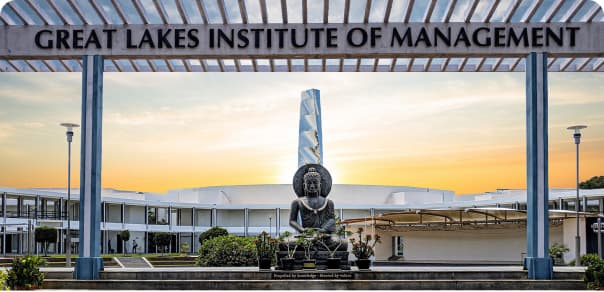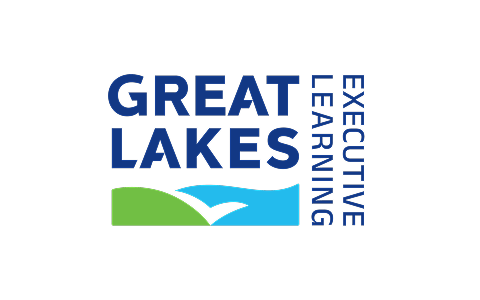Resource Planning
Learn resource planning from basics in this free online training. Resource planning course is taught hands-on by experts. Learn various types of resource planning methods, its importance & benefits in details with example.

Ratings
Level
Learning hours

Learners
Skills you’ll Learn
About this course
Resource planning is a process of allocating tasks to team members based on their capacity, skill sets, and the best fit for the job. It maximizes efficiency by helping teams manage their utilization rates, track capacity, monitor progress, and keep projects on budget and work on track. In this course, you will understand about identifying, forecasting, and allocating various business resources to the projects at the right time. The main objective of proper resource planning is to achieve the optimum use of an organization's time and people.
Course Outline
Resource planning is the process of identifying, forecasting, and assigning various types of resources to the projects at an appropriate time and cost.
Get familiar with the concept of resource planning by taking the example of a software development project.
Poor resource planning can cause improper resource allocation, decreased productivity, project delay, etc.
Resource planning is an essential determinant of whether or not a project will succeed. Effective resource planning ensures the project delivery on time.
There are four important steps in resource planning- Ascertain resources, procure resources, manage resources, and control resources.
 UPGRADE
UPGRADE
Recommended university programs
What our learners enjoyed the most
Skill & tools
60% of learners found all the desired skills & tools
Frequently Asked Questions
Will I receive a certificate upon completing this free course?
Is this course free?
What is Resource Planning?
Resource planning is the process of identifying, scheduling, and managing all of the resources needed to complete a project. This includes human resources, equipment, facilities, and other materials. You now learn Resource Planning in-depth by enrolling in Great Learning's free Resource Planning courses.
Why do we need Resource Planning?
There are several reasons why resource planning is essential:
- Resource planning ensures that an organization has the right mix of resources (example: people, equipment, etc.) to achieve its objectives.
- It helps optimize the use of resources, improving efficiency and saving costs.
- Resource planning can help avoid or mitigate risks associated with resource shortages or other problems.
- It helps improve coordination and communication within an organization and between different organizations.
- Resource planning can help ensure that an organization's resources are used sustainably.
Why is Resource Planning necessary?
Resource planning is necessary to ensure that an organization has the right resources in place to meet its goals and objectives. By planning for resources, an organization can avoid overspending or underspending and ensure that it has the right mix of resources to meet its needs. Learn more about it by going through the Resource Planning Courses Great Learning offers.
Resource Planning
Resource planning is a crucial component of effective project management and organizational success. It involves the careful allocation and management of various resources, including human, financial, technological, and physical assets, to achieve specific objectives. Resource planning plays a pivotal role in ensuring that an organization or project operates efficiently, stays within budget, and meets its goals.
Resource planning encompasses several key elements:
- Human Resources: The allocation of skilled personnel is a critical aspect of resource planning. It involves identifying the right individuals with the required expertise and assigning them to appropriate roles within the project or organization. This process ensures that tasks are completed by competent professionals, leading to better outcomes and increased efficiency.
- Financial Resources: Managing financial resources is essential for any organization. Resource planning in this context includes budgeting, cost estimation, and financial forecasting. It helps organizations ensure that they have the necessary funds to support their operations, projects, and strategic initiatives while avoiding financial crises or overspending.
- Technological Resources: Technology is an integral part of modern business operations. Resource planning involves identifying the right technology solutions, such as software, hardware, and IT infrastructure, to support the organization's goals. It ensures that the technology is up-to-date, reliable, and cost-effective.
- Physical Resources: These include physical assets like office space, equipment, and machinery. Effective resource planning ensures that these assets are utilized optimally, reducing downtime and maintenance costs.
- Time and Scheduling: Time is a finite and valuable resource in any project. Resource planning involves creating schedules and timelines to manage work tasks efficiently, ensuring that deadlines are met and that time is used effectively.
The benefits of resource planning are numerous and contribute significantly to an organization's success:
- Improved Efficiency: By allocating resources effectively, organizations can reduce waste and optimize productivity, leading to higher efficiency levels. This results in cost savings and increased profitability.
- Cost Control: Resource planning helps organizations manage their finances more effectively, preventing overspending and financial instability. It allows for the allocation of resources based on priority, need, and cost constraints.
- Risk Mitigation: By planning resources carefully, organizations can identify potential risks and develop strategies to mitigate them. This proactive approach reduces the likelihood of unexpected setbacks and costly delays.
- Better Decision-Making: Resource planning provides decision-makers with essential data to make informed choices about resource allocation, project priorities, and resource reallocation. This leads to more strategic and successful decision-making.
- Resource Optimization: Through effective resource planning, organizations can maximize the utilization of their resources, such as human capital and technology. This can lead to greater innovation and competitiveness in the market.
- Enhanced Collaboration: Resource planning often involves team collaboration and communication. It ensures that all team members are on the same page, leading to better coordination and synergy among different departments and functions.
- Strategic Alignment: Resource planning is closely tied to an organization's strategic objectives. By aligning resource allocation with strategic goals, an organization can make sure that it is moving in the right direction and achieving its long-term vision.
However, resource planning is not without its challenges. It requires a deep understanding of an organization's goals, capabilities, and constraints, as well as the ability to adapt to changing circumstances. In addition, resource planning can be complex, especially in large and multifaceted organizations or projects. Furthermore, it relies on accurate data, and inaccurate or incomplete information can lead to flawed resource allocation decisions.
In conclusion, resource planning is an essential process for achieving efficient resource utilization, cost control, and effective project management. It encompasses the allocation of human, financial, technological, and physical resources and is crucial for an organization's success. While it poses certain challenges, the benefits of resource planning in terms of efficiency, cost control, risk mitigation, and strategic alignment far outweigh the difficulties. It is a fundamental tool for any organization or project seeking to thrive in today's competitive and dynamic business environment.































.jpg)

.jpg)





